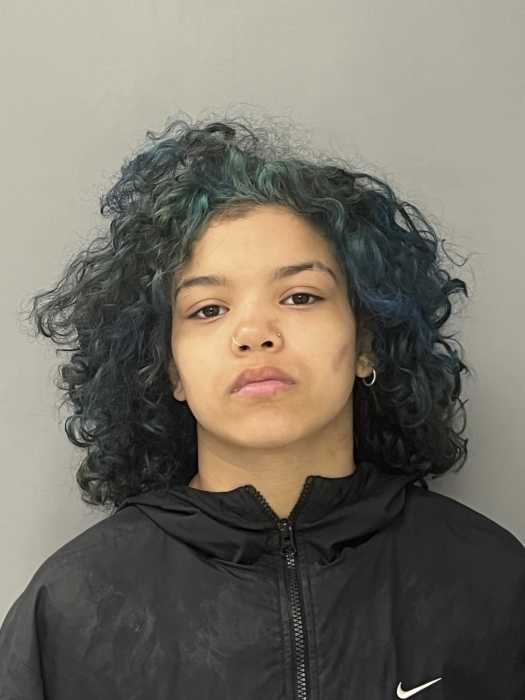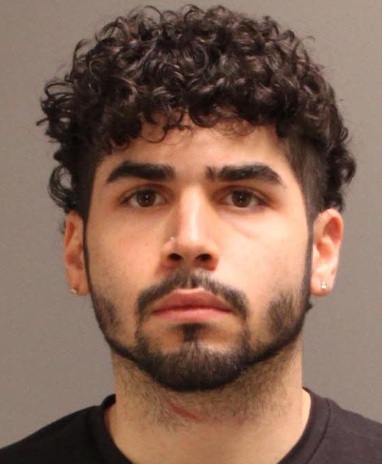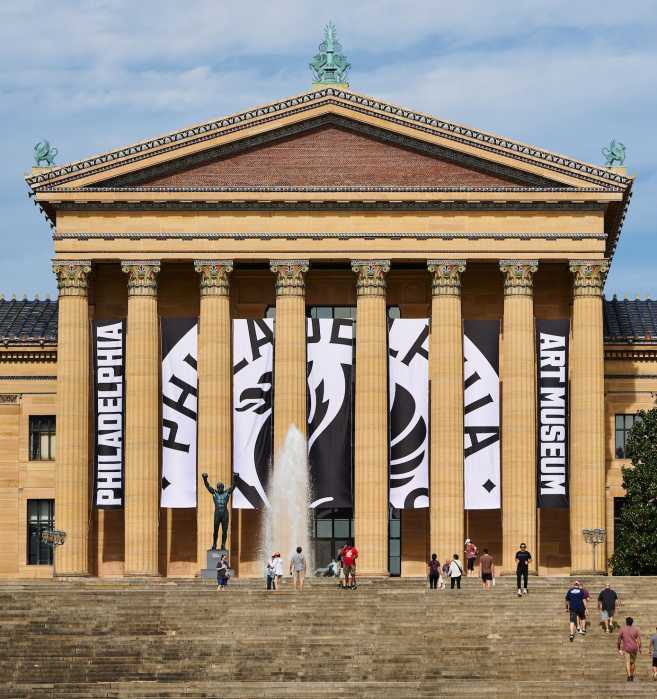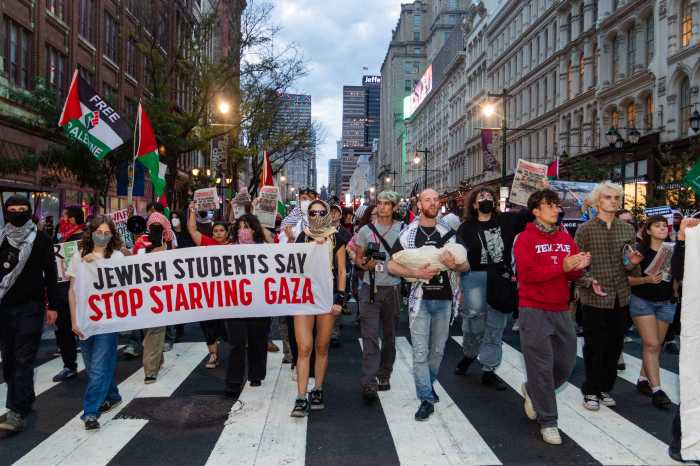Fred Bush would not have moved to Narberth if not for SEPTA’s Paoli-Thorndale Line.
Busch’s daughter, as a young child, memorized the route from their home to the Franklin Institute – her favorite place – via Regional Rail. Now, as she prepares to enter high school, she is planning to take the train on her own for the first time to attend summer camp, he said.
“I would really be saddened if this was going to be the last summer she’d be able to take the train,” Bush, Narberth’s borough council president, said, choking back tears.
Bush was among dozens of SEPTA riders who testified Monday morning at the first of four hearings on the authority’s doomsday budget plan. The proposal calls for the elimination of 50 bus routes and five Regional Rail lines, among other service reductions, to overcome a $213 million budget deficit.
The clock is ticking for a funding solution from Harrisburg. SEPTA’s board is scheduled to take a final vote on the plan June 26, days before the state budget deadline (though negotiations have occasionally stretched into July and beyond in years past).
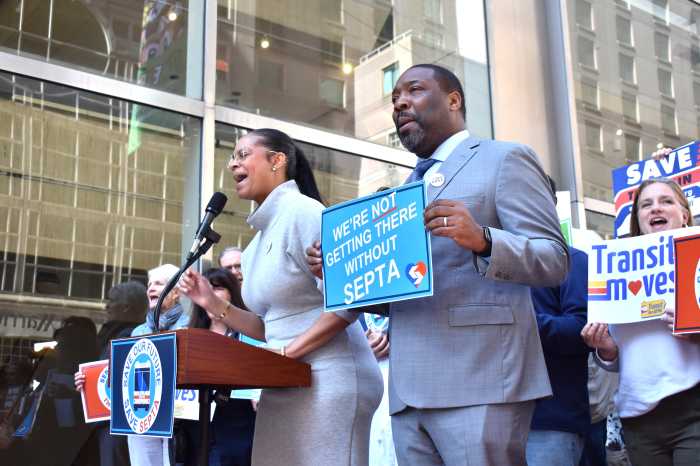
Residents from Philadelphia and the suburbs discussed the impact the cuts would have on small businesses, cultural institutions, and even the South Philadelphia Sports Complex, where Broad Street Line trains would stop running before nighttime games and concerts conclude.
Folks said they bought houses near SEPTA stations or relocated from across the country to Philadelphia to take advantage of the region’s transit system, one of the nation’s most extensive networks.
More people would be forced to drive, clogging the area’s highways and increasing pollution, advocates said. Still others are unable to drive or afford the cost of a car.
Erin Beltle, a recent Temple University graduate, said she has tried to learn to drive, but seizures from severe epilepsy have prevented her. “You don’t want me on the road driving,” she told SEPTA officials, through videoconference, at the hearing.
The service reductions could spawn a “public health crisis,” said Lauren Montgomery, who works in patient and family services at the Children’s Hospital of Philadelphia.
“It’s not just about getting to appointments, which is important, but all of our hospital employees also rely on SEPTA to get to work,” she added, during in-person testimony inside a packed boardroom. “We are going to lose full departments at our hospitals if we do not fund SEPTA.”
Barring a funding solution, SEPTA intends to end service on 32 bus routes in late August. A month later, the authority would institute a hiring freeze and implement a 21.5% fare hike, raising the base price from $2.50 to $2.90.
Reductions would continue on Jan. 1, 2026, with the axing of 5 rail lines, the Broad-Ridge Spur, another 18 bus routes and a 9 p.m. curfew on all subway and rail services. Frequencies would be reduced across modes on the remainder of the system.
A third of riders, nearly 200,000 people on an average weekday, would lose access to transit or only be able to access significantly reduced service, SEPTA officials said in a presentation Monday.
Transportation to 67 schools with 55,000 students would be impacted, according to the authority. SEPTA’s proposal includes truncating its Access paratransit coverage for seniors and people with disabilities (previously known as CCT Connect).
“I don’t want to see any changes made,” said Lorraine Rocci, of Royersford, a SEPTA Access user. “We rely on you, and we hope you get the funding because you’re an important way for me, being disabled, to get around.”
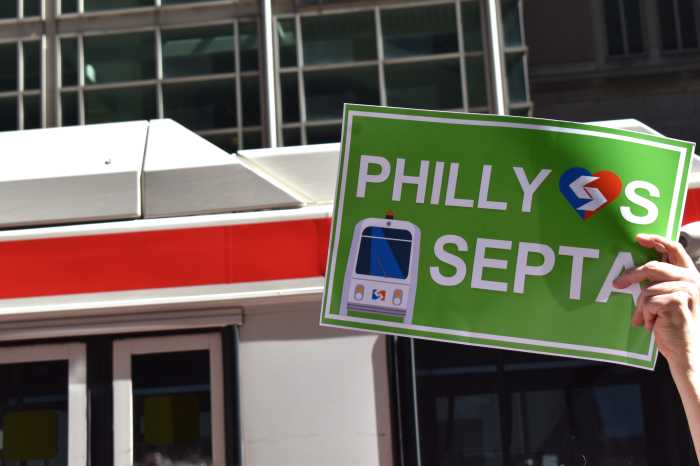
Shortly before Monday morning’s hearing, Democratic lawmakers and transit advocates rallied outside SEPTA’s Center City headquarters.
“If we don’t fund SEPTA, we’ll all be honking our horns at each other, on 95, 76 and the Boulevard,” said Northeast Philadelphia state Rep. Sean Dougherty, a Fox Chase Line rider. “I don’t know about you, but I hate traffic.”
Gov. Josh Shapiro’s budget plan includes a provision that would dedicate about $168 million a year to SEPTA, averting the planned cuts.
Legislation to increase funding for transit agencies across Pennsylvania has repeatedly passed the state House, where Democrats hold a majority, but has so far failed to advance in the GOP-controlled Senate.
SEPTA hosted representatives and senators of both parties on Friday, inviting members of the legislature’s transportation committees to learn more about the system.
“At least from my conversations with legislators, I think that they’re looking for a way to solve a problem that’s even bigger than transit,” the authority’s interim general manager, Scott Sauer, told reporters after the hearing. “They’re looking for ways to solve their own budget crisis, but at the same time, they’re considering all the things that are happening here.”
Late last year, Shapiro ‘flexed’ federal highway dollars to SEPTA to stave off reductions and fare increases. Sauer said a similar move is unlikely this time around, and that the authority needs a permanent fix.
In April, when SEPTA unveiled the proposed cuts, GOP Senate Majority Leader Joe Pittman said the burden for the transit agency’s financial woes should not fall “entirely on Pennsylvania taxpayers, most of whom do not live within the service region and do not realize any benefit.”
Pittman’s office did not respond to a request for comment Monday.
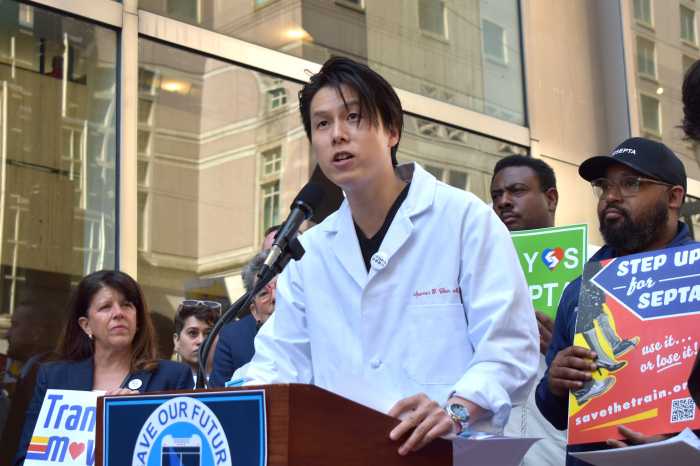
State Sen. Sharif Street, of Philadelphia, told those at the rally that only six of Pennsylvania’s 67 counties produce more tax revenue than they get back from Harrisburg, and five are in SEPTA’s service region.
“So we’re not really asking the commonwealth to subsidize SEPTA,” he added. “We’re just asking the commonwealth to give us a portion of the money that our region generates for the commonwealth.”
Lawmakers and advocates stressed that transit is not just a Philadelphia issue. Agencies across the state are facing similar funding shortfalls due to the expiration of federal COVID-19 relief funds, lagging ridership recovery rates and inflation, they said.
“Public transportation is in every county in the commonwealth, with over a dozen agencies providing fixed route service,” Connor Descheemaker, of Transit for All PA, said. “This is not just an urban issue, and we need to repeatedly and conclusively combat that false narrative that we are hearing from the legislature and other interests.”
Budget hearings to gather public feedback were also held Monday afternoon and Tuesday. Sessions on SEPTA’s capital plan are scheduled for Wednesday. Individuals can also submit comments about the operating budget through May 28 by calling 215-580-7772 or emailing operatingbudget@septa.org.




